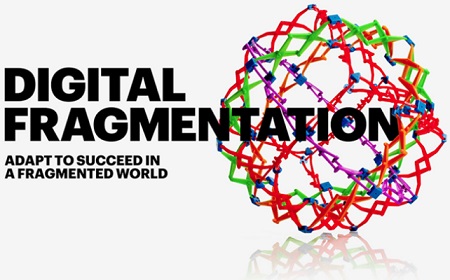A new report warns that while ‘digital fragmentation’ risks frustrating companies’ plans for future growth and innovation, the UK is at the forefront of the response to this.
The study, from Accenture warns that ‘digital fragmentation’ – the rise in restrictions on the free flow of data, IT products, IT services and IT talent across country borders – is disrupting the global business environment and could inhibit companies’ strategies for growth and innovation. But UK business leaders are leading the response.
The findings feature in a new report, titled Digital Fragmentation: Adapt to Succeed in a Fragmented World, which suggests that the global trend towards ‘digital globalisation,’ powered by free-flowing data, is giving way to ‘digital fragmentation,’ driven by increasing barriers to globalisation.
The report finds that 90 percent of UK chief information officers (CIOs) and chief technology officers (CTOs) surveyed feel their IT strategies and systems are vulnerable to these increasing barriers; 52 percent extremely so. Asked whether these increasing obstructions make it likely that their company will choose to exit a market or to delay or abandon market-entry plans in the next three years, 84 percent of UK respondents agreed, compared with 74 percent of global respondents.
UK business leaders seem more alert to the risks that this fragmentation presents to digital growth, with 70 percent believing that it compromises the ability to use or provide data and analytics services across national markets (compared to 54 percent of respondents globally); and 62 percent believing the same about cloud services, compared to 54 percent globally.
UK respondents are also at the vanguard of taking tangible action in response. For example, 62 percent are already in the process of reorganizing their global IT architectures and governance structures in response to new barriers to globalisation, compared with 51 percent of global respondents. And 76 percent of UK respondents are already investing in automation to offset potential labor restrictions, compared with 67 percent of global respondents.
Commenting on the report’s findings, Armen Ovanessoff, Principal Director at Accenture Research, said: “Contrary to the rhetoric of many digital evangelists, national borders do matter. Business leaders are waking up to their responsibility in helping shape the rules for our digital future. When we consider the profound transformations ahead in areas like artificial intelligence, bio-technology and the Internet of Things, it is clear that this is just the beginning of a complex journey that demands cross-border and cross-sectoral cooperation.
UK business leaders seem acutely aware of these trends. Recent political upheavals may have made them more sensitive to the need to adapt business strategies and operations to the evolving global geopolitical and economic landscape.”
Methodology
As part of its research for the report, Accenture partnered with Roubini ThoughtLab to survey 402 chief information and chief technology officers at companies across Asia, Europe, North America and South America, with respondents split evenly between each of the eight countries represented: Brazil, China, Germany, Japan, India, South Korea, the United Kingdom and the United States (two companies have no geographic headquarters). Industry sectors represented include services, technology, manufacturing, resources/commodities, retail/distribution, and digital platforms. Of the 402 companies, approximately 38 percent have annual revenues between US$250 million and US$4.9 billion; 36 percent have annual revenues between US$5 billion and $19.9 billion; and 26 percent have annual revenues of at least US$20 billion. In addition to the survey of CIOs and CTOs, Accenture conducted in-depth interviews with experts on policy, economics and digital business and also performed additional analyses, which included Web scraping, data analytics, trend analysis and policy research.
